Period spot checks - a year of secrecy and delay
A year has passed since the practice of period spot checks as a form of intimidation in schools was first reported by Malaysiakini on April 22, 2021, and the feeling persists that evasion and delays are behind the government's response.
The initial story was prompted by social media sharing of the phenomenon and once the first article was published, more and more survivors came forward to share their stories.
When the issue was first reported, the ministry’s preliminary investigations were said to show no indication that such practices and other disturbing incidents had occurred.
In response to this, Malaysiakini submitted a list to Education Minister Mohd Radzi Md Jidin, which named 15 schools where female students were allegedly subjected to period spot checks to prove that they were menstruating.
Despite superficial attempts to address the issue over the past year when pressed on it through no less than 47 stories by Malaysiakini, the minister has displayed a lack of transparency and accountability in the matter, alongside other issues.
Indeed just two days ago, Radzi - along with his ministry officials - failed to attend a parliamentary select committee (PSC) on education for an explanation over the issue of recycled Sijil Pelajaran Malaysia (SPM) examination questions.
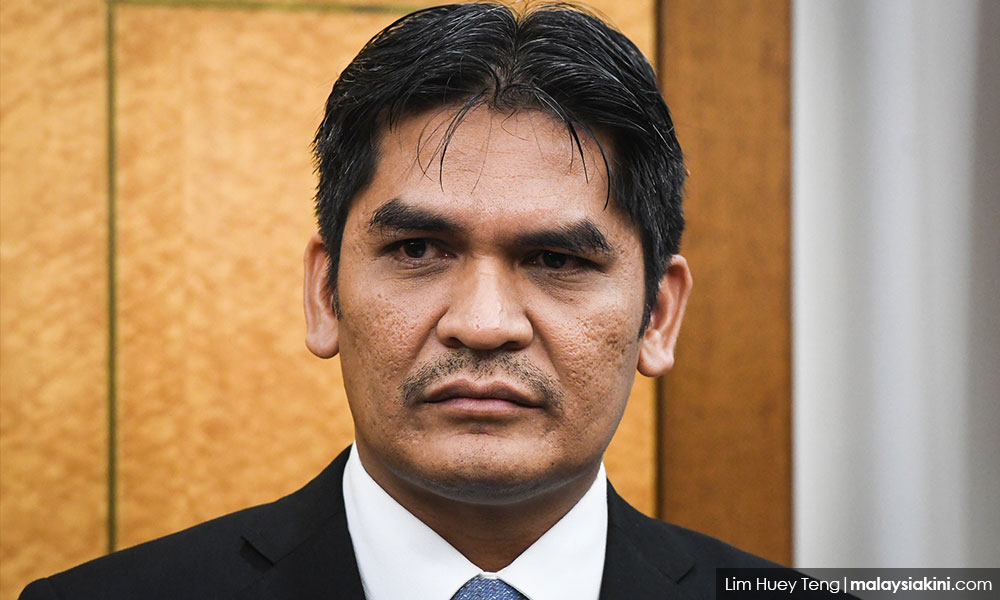
According to PSC chairperson and former education minister Maszlee Malik, Radzi’s failure to attend the PSC could impact the ministry negatively, creating a public perception that the ministry was not being transparent in its affairs.
Constant delays and lack of public statements
In June 2021, Radzi said that the ministry was in the final stages of forming an independent committee to look into existing procedures that addressed complaints on the practice of period spot checks in schools, as well as other related matters.
However, he did not name the individuals on the committee at the time.
Radzi, his ministers and his ministry were, in fact, silent on the issue until late October 2021 when pressed into action with another round of alleged violations.
This time, he visited the ERT Vocational College in Setapak, Kuala Lumpur, following allegations that period spot checks had been conducted.
About 30 other girls aged 18 or 19 were rounded up at around 7.50pm on Oct 18, given cotton buds and were told to "prove" they were on their period.
Radzi responded by ordering a circular sighted by Malaysiakini and verified by an MOE source, in which the director-general of the MOE says that "the ministry found that physical examinations, especially concerning menstruation among female students, had occurred in educational institutions under the MOE.
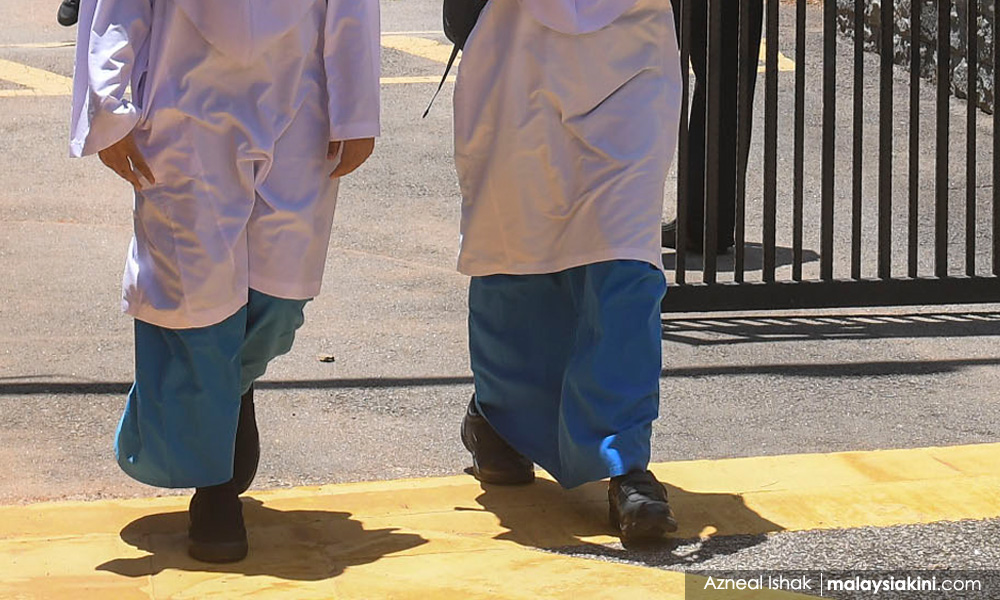
"The MOE takes this matter seriously and stresses that it should not happen," read the circular dated Nov 2.
"In relation to that, all state Education Department heads and district education officers must ensure that this practice of physical examinations must not occur in institutions under the MOE," read the circular.
No responses to Malaysiakini's inquiries for more information were entertained.
Last month, on March 17, it was revealed in a written parliamentary response by Radzi that the special committee had been established, with it comprising individuals with a background in education, religion, psychology and the law - who have knowledge and experience with regard to sexual harassment and bullying.
A list consisting of the identities of these individuals has yet to be disclosed to the public. Malaysiakini has once again reached out to the Education Ministry but has yet to receive a response.
'Don't sweep it under the carpet'
Looking back on the year that has passed, Bandar Utama state assemblyperson Jamaliah Jamaluddin is one of many political leaders and civil society organisations, who are urging Radzi to end his silence on the period spot check issue.
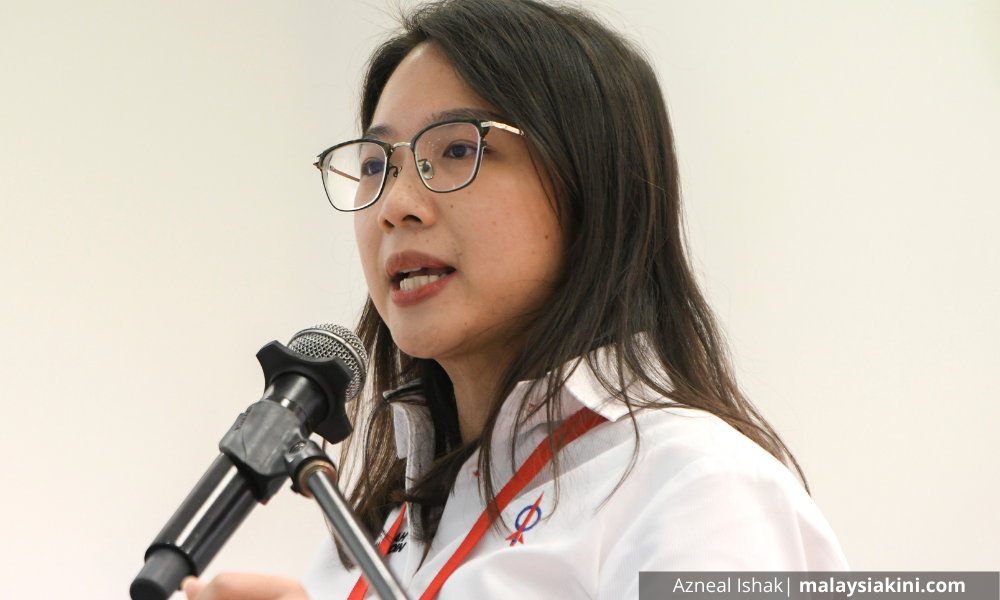
Speaking to Malaysiakini, Jamaliah said that the act of period spot checks is a clear violation of a person’s privacy and can be considered physical harassment or abuse.
“Definitely, there should be a concrete answer and view from the ministry (on whether) period spot checks are allowed or banned,” she said.
Jamaliah also took issue with the ‘pointless’ explanation that it is a ‘tradition' and not a standard operating procedure (SOP) for schools.
This was said in reference to an investigation carried out by the ministry which revealed on Nov 15 last year that the spot checks were deemed as a ‘tradition’ carried out by seniors in schools.
“To me, the space for learning should be a comfortable and safe place. If the students can't study in a safe and loving environment, it has already defeated the purpose of the school as a safe and comfortable place to learn.
“Also, looking at it as such a simple, straightforward problem, I don't understand why it has not been addressed by the ministry, and there's no official measure taken so far.
“Therefore, it's about time for Radzi and the ministry to get back on this matter without any sort of an avoidance,” Jamaliah added.
'Troubling' response
Johor PKR Women's chief Napsiah Khamis reminded Radzi that the issue deals with the dignity of students.
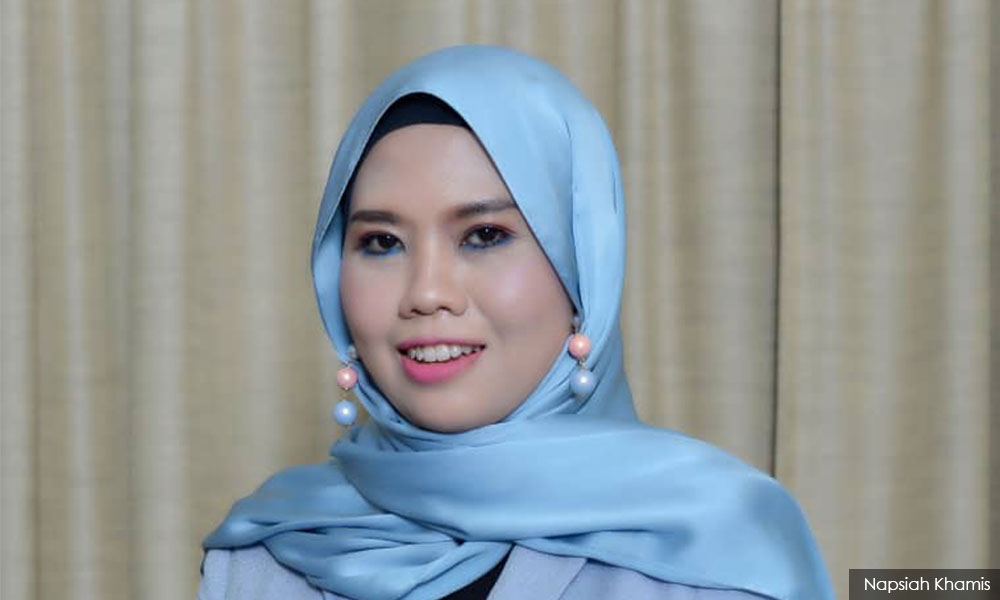
She also pointed out that holding the private parts of students could be considered sexual harassment - whether done consciously or not.
“Radzi Jidin should not be silent.
"He must clarify the time taken to set up the committee and the challenges faced by the ministry to set it up. If it is too late, there will be more cases of period spot checks in schools.
"It should be compulsory to set a deadline,” Napsiah said.
Former deputy education minister Teo Nie Ching observed that the ministry had yet to establish a concrete action plan to ensure period spot checks are strictly prohibited since its Nov 2, 2021, circular to all state Education Department heads emphasising the prohibition of period spot checks.
“I am aware that the education minister has made a stern declaration that action will be taken against responsible parties.
“But to date, we have not seen any update or progress from the Education Ministry, and no action has been taken against anyone.
“I am concerned because we are hearing different versions of what happened,” she said.
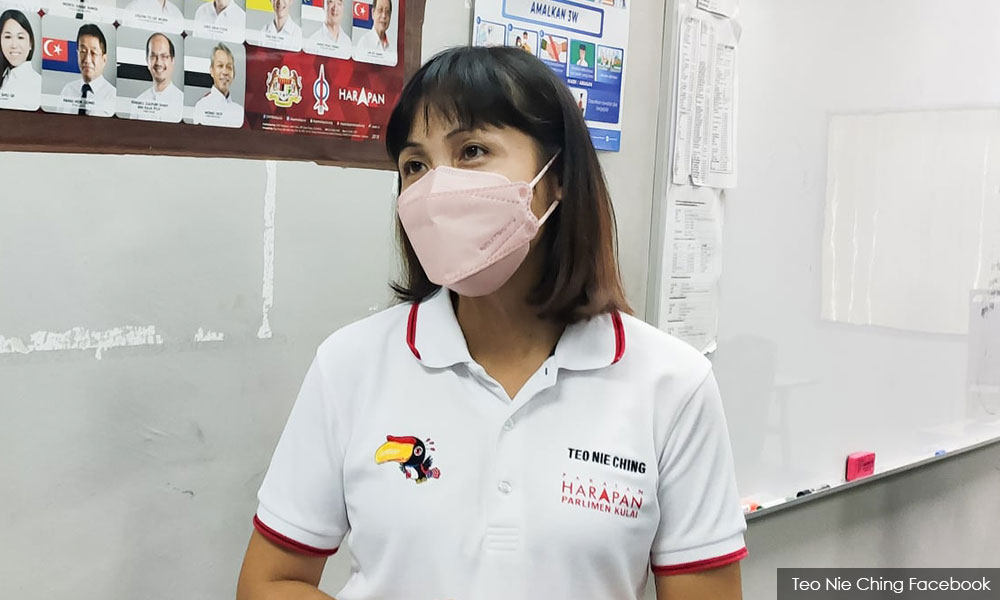
Teo described the ministry’s response to the matter thus far as troubling.
“This is troubling to me. It shows that a serious issue has probably been swept under the carpet.
“There has not been any update as far as I know. Is there a circular issued about the issue or a mechanism for complaints provided for victims? Many of us want to know as it concerns our children,” she said.
Responding to the ministry’s evasive response to the matter, Sisters In Islam (SIS) said that the lack of details in the Nov 2 circular was concerning as it left many in the dark on how it is enforced in schools.
“It has been one year since the issue was openly discussed on social media, and we acknowledge that the Education Ministry has addressed this by issuing a circular on Nov 2 last year, to prohibit physical check-ups, particularly period spot checks. However, details are still missing from the circular.
“This is concerning as even after six months, we are still in the dark as to how this circular is enforced in schools.
“We also do not know if school teachers are aware of the circular and if the circular includes private education institutions and educational institutions under state governments and other governmental bodies such as religious schools and tahfiz schools,” SIS said.

The group questioned the guidelines and actions to combat the practice and asked if period spot checks are still prevalent in schools.
On the independent task force set up to look into mechanisms dealing with sexual harassment in schools, SIS questioned the status of an official update on the committee.
“How long do we have to wait for the official update on this special committee? How long do we have to wait to ensure our girls are safe at school?
“The lack of updates on period spot checks shows a lackadaisical effort by Education Minister Radzi Jidin to protect our girls from sexual harassment in schools and other educational institutions,” SIS said.
Women's Aid Organisation research and advocacy officer Isabel Chung said that the prevailing practice of period checks is 'extremely distressing'.
She explained that this is particularly so when it occurs within the context of boarding schools, where students are not always in contact with their parents and instead are under the responsibility of the school.
"Standards to which abuse is perceived, tolerated and practised within schools dictate the norms of safety for girls - in the case of period spot checks, many students do not realise that these checks are inappropriate or ‘unofficial’, but rather to be expected from girls of a certain age.
"Expectations like this speak to the extent of power imbalances within the context of our schools that underlie a culture of abuse and silencing - particularly without safe reporting mechanisms in place.
"The initial steps taken by the Education Ministry last year were cautiously encouraging.
"By engaging with students who have experienced period checks, the minister had chosen to highlight students’ voices and experiences - which, unfortunately, are too often neglected in plotting a path forward," Chung said.
However, she noted that little progress had been made since then.
Chung cited a report produced by All Women's Action Society and Save The Schools last year, where it was revealed that the vast majority of girls reporting such acts were either not taken seriously, faced harassment from the perpetrator’s family or were silenced.
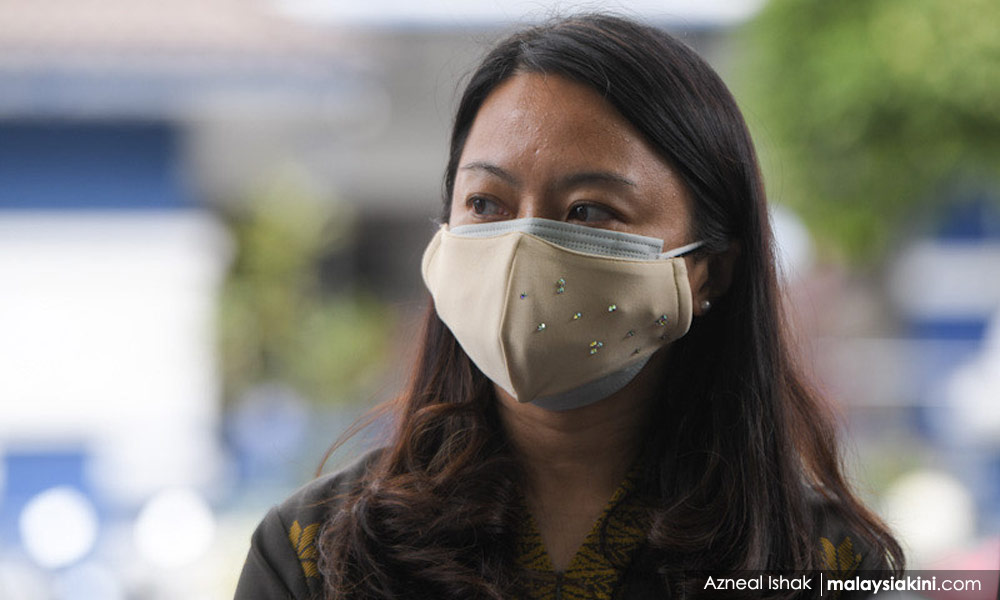
Meanwhile, former deputy women, family and community development minister Hannah Yeoh felt that providing data on how many are suffering from the issue would be a helpful start to tackling the issue.
“I suppose the least the Education Ministry can do is to provide data - as to how many are struggling with this issue. That is the starting point,” Yeoh said.
Period spot checks - how it started
The practice of period spot checks was first reported by Malaysiakini on April 22 last year when over a dozen individuals reached out to Malaysiakini to share their experiences.
This came after a question by a Twitter user on whether such practices still exist in school. The Twitter thread sharing these stories has been shared more than 6,000 times.
Those who came forward then had said they wished to see an end to the harassment and normalised acts of “period shaming”.
Malaysiakini’s interviews with women and girls who experienced it found such spot checks have been the practice in multiple schools in Malaysia for at least two decades.
These incidents - some of which date back to 20 years ago - allegedly include showing blood-soaked sanitary pads, performing vaginal swabs with either cotton buds, tissues, or fingers, or having a teacher, warden or school prefect pat the students down at the groin to feel if they were wearing a sanitary pad.
This is to ensure the girls were not faking menstruation to skip religious obligations. Muslim women and girls do not perform ritual prayers while menstruating.
The ministry’s initial investigations - which were carried out in response to public outcry and reported complaints - were said to show no indication that such practices and other disturbing incidents had occurred.
In response to the inconclusive investigation, Malaysiakini submitted a list to the former education minister, which named 15 schools where female students were allegedly subjected to period spot checks to prove that they were menstruating.
A copy of the list was also sent to Radzi’s deputies, Muslimin Yahaya and Dr Mah Hang Soon, as well as the ministry’s secretary-general and Corporate Communications Department.
The list was sent along with other details, such as the dates of alleged offences (most of which dated from 2011 to 2018) and the wardens or teachers who were named by the students.
The names of the alleged victims were not included in the list.
Ignoring a chorus of disapproval
When the news broke, Penang mufti Wan Salim Wan Mohd Noor was among the first to have spoken out against the practice of checking whether schoolgirls are having their menstrual period.
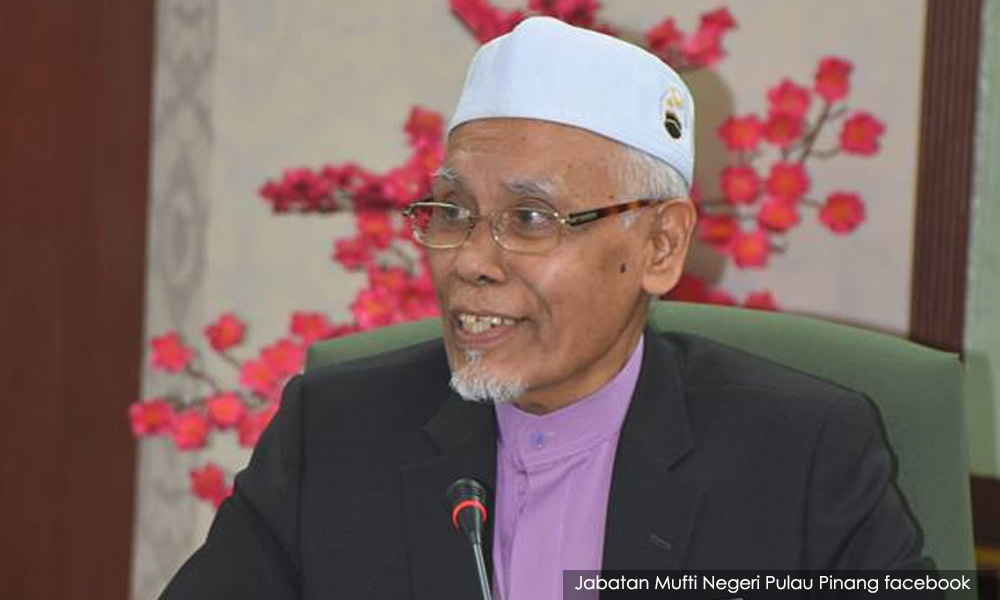
Wan Salim said no one has the right to embarrass girls and women by checking their private parts to see whether they are menstruating and that such humiliating treatment of children was forbidden in Islam.
In response to reports that this practice was occurring at boarding schools and Mara Science Junior Colleges (MRSM), Majlis Amanah Rakyat (Mara) chairperson Azizah Mohd Dun announced Mara’s plans to review complaints about period spot checks against schoolgirls.
The Beaufort MP stated that she was personally opposed to such a practice in schools. In May last year, Mara announced that it had completed its probe but did not publically announce any sanctions.
Association of Islamic Doctors of Malaysia president Dr Ahmad Shukri Ismail also said the practice is excessive, while Women, Family and Community Development Minister Rina Harun said that the practice should never happen again.
Former ministers Rafidah Aziz, Azalina Othman and Maszlee have all voiced their opposition to the practice, with Rafidah demanding that the Education Ministry put a stop to it and lay out clear ground rules on how schools, including boarding schools, treat students.
Maszlee said such degrading practices must be stopped and condemned. These should have never happened anywhere, let alone in schools, where children should be safe and protected from any form of harm and abuse.
Malaysian Mental Health Association president Dr Andrew Mohanraj, who said period spot checks are "a form of bullying" that can have a negative impact on young girls for many years afterwards, also called for the Education Ministry to put a stop to such a practice.
Opposition leader Anwar Ibrahim had similarly urged Radzi to take decisive action to put a stop to period spot checks and rape culture in schools.
Anwar’s statement also took note of an incident where then-school student Ain Husniza Saiful Nizam called out a male teacher for “jokingly” telling boys in her high school class to target adults if they wanted to rape women.
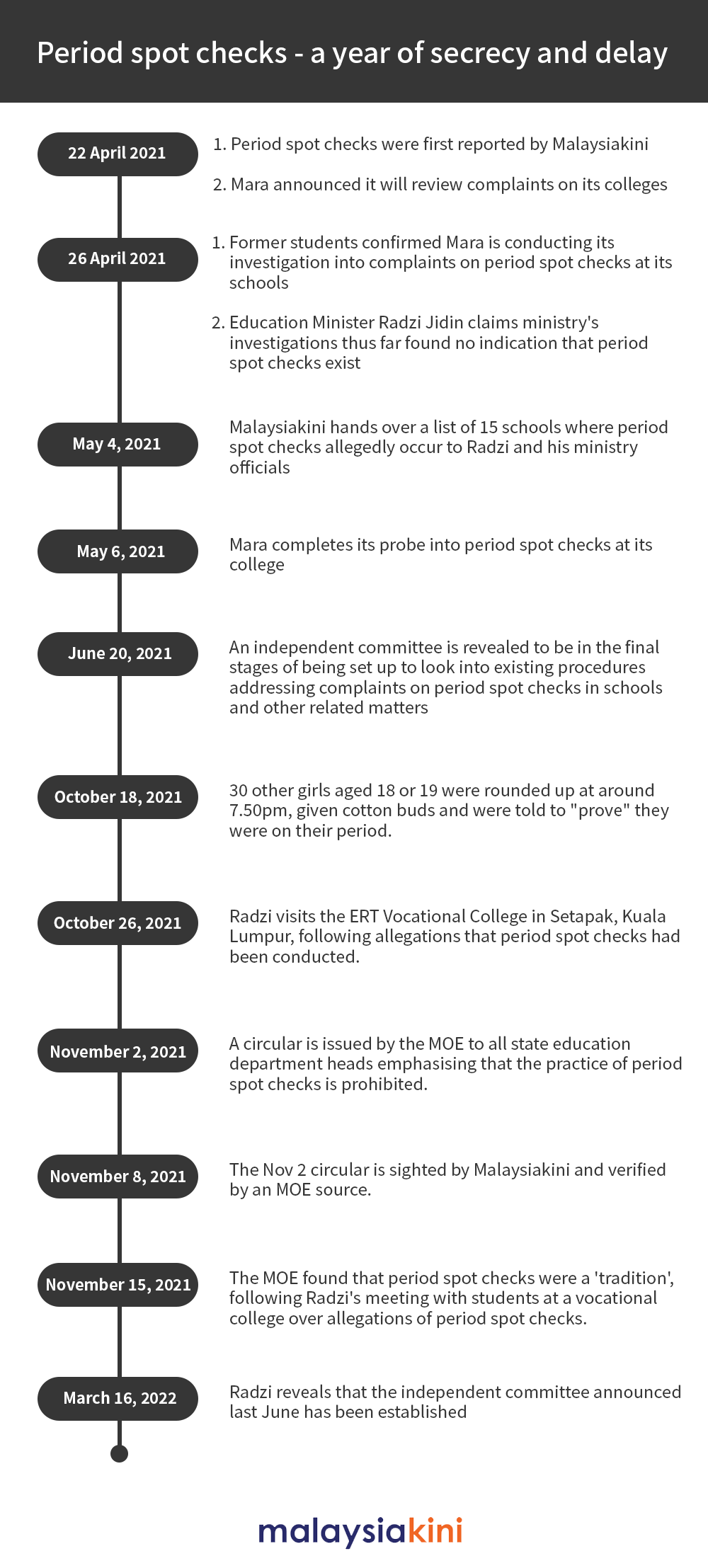
RM12.50 / month
- Unlimited access to award-winning journalism
- Comment and share your opinions on all our articles
- Gift interesting stories to your friends
- Tax deductable
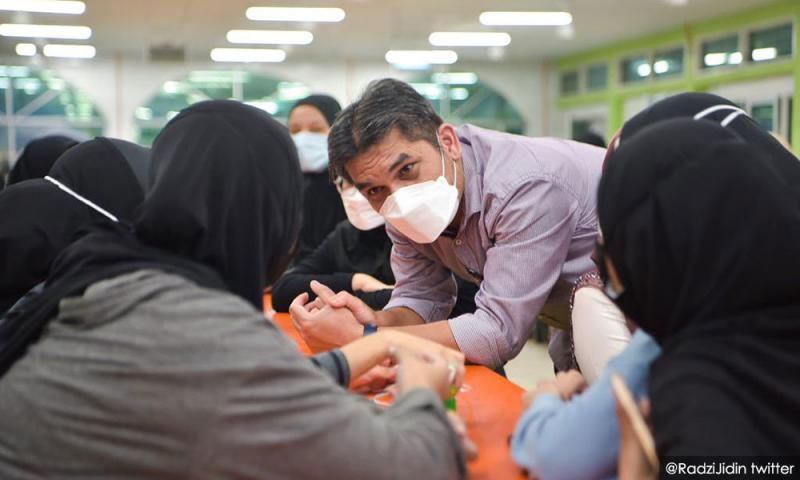
 Alena Nadia
Alena Nadia